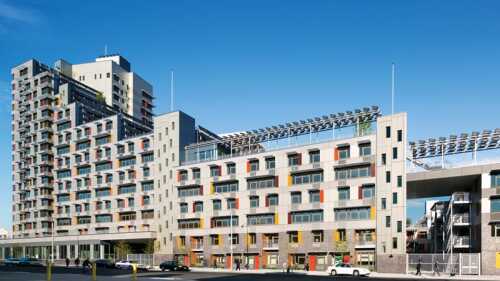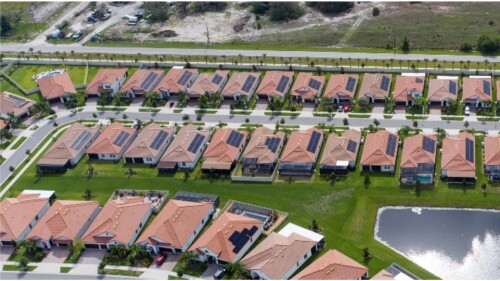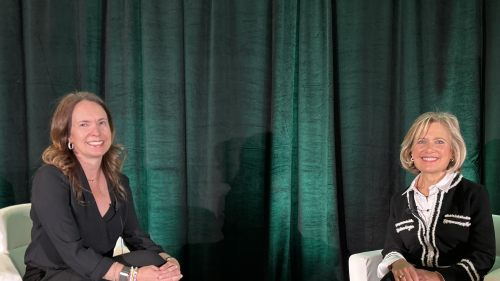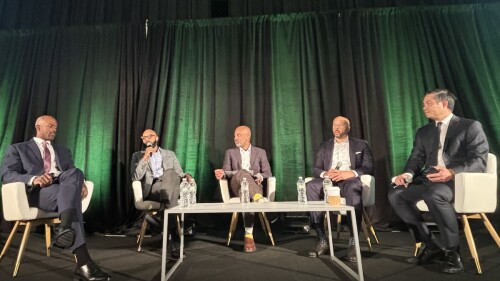Around the world, commercial real estate investors are tired of sky-high prices and low investor yields—but they keep on paying.
“You can’t go anywhere at a real estate gathering like this, especially in the U.S., without hearing people complain about the absolute level of yields,” said Cia Buckley Marakovits, chief investment officer at Dune Real Estate Partners and moderator of “Capital Markets: A Global Perspective,” a keynote session at the 2014 ULI Fall Meeting.
Global real estate investors continue to watch and worry as property prices rise and yields drop. To avoid paying too much for real estate, global institutional investors are struggling to find the safest investments in the strongest markets.
Ready Money
For people who own and develop commercial real estate, the eagerness of investors makes it easier to find the money to buy or build. That includes debt financing for construction and for stabilized assets, in addition to different types of equity financing. “We are almost as liquid as we were prior to the last downturn in terms of the ability to arrange new financing,” says Jeff T. Blau, chief executive officer, Related Companies.
It is also relatively easy to find buyers, especially for stabilized properties. “There seems to be so much demand from around the world from global capital investors for core, stabilized assets—any type of cash-flowing asset,” says Blau. “There has been no decline in the demand. It seems like it is never ending.” The money is now pouring in from a growing list of places, including China, Singapore, parts of Europe, and the Middle East.
Prices Too High?
Global real estate investors are trying to resist the urge to pay even more for commercial real estate investments. That’s because even though yields on real estate investments are near historic lows, they are higher than most of the alternatives.
Commercial real estate has attracted investors who usually focus on sovereign bonds. That’s because benchmark bond yields are very low. Ten-year bonds issued by the German government now yield about 1 percent. In comparison, investors can now buy core real estate properties at investment yields of 4 percent—a 300-basis-point difference. “That differential is the highest it has been for the last 20 years,” said Olivier Piani, chief executive officer, Allianz Real Estate GmbH, based in Germany.
So real estate yields could drop even more, getting closer to the low yield on benchmark bonds—pushing real estate prices even higher. “You could look at that and say that real estate is real cheap,” said Piani. “If anything, yields will probably slowly go down.”
In the long term, benchmark bond yields will rise. However, benchmark bond yields are likely to stay for some time as central bankers face a slowing economy and potential deflation in Europe. “Bond rates will take off,” agreed Goh Kok Huat, chief operating officer and president, GIC Real Estate, formerly known as Government of Singapore Investment Corporation. “But expect delay on take-off.”
Rising yields for benchmark bonds would put upward pressure on commercial real estate yields—though the two don’t always move together in lockstep. In times when inflation is higher, real estate yields often are even lower than benchmark interest rates. So global real estate investors are worried—but not panicked—that real estate prices will eventually fall.
“What would really hurt is making certain investment calls at the top of the cycle. . . . Which countries are the most mature?” Goh asked. To protect itself, Goh’s fund is trying to identify particular markets and asset types that are safer than others. “The GFC [global financial crisis] was a synchronized downturn. The next one will probably not be synchronized.”
Despite the bite that U.S. taxes take out of profits from foreign investment, the punitive Foreign Investment in Real Property Tax Act doesn’t make investors like GIC Real Estate less attracted to U.S. real estate. “It just makes us a lot less competitive when we compete with local pension funds,” says Goh.
Core Cities on Top
The search for safe investments continues to drive global investors to the largest, international cities—particular in the United States—even though prices in these markets are already sky-high. “Instability around the world seems to be driving capital flows to major urban markets here in the U.S. and to large trophy-type developments,” said Related’s Blau. “Given what is happening around the world, we are truly a safe haven.”
Real estate in core cities is also fundamentally in demand. Major corporations are coming back to urban neighborhoods well served by transit and amenities like restaurants and shopping. “The number-one challenge today for CEOs of growing companies is finding and recruiting talent,” says Blau. “Other than paying more, the number-one thing that they believe they can do is provide a state-of-the-art work environment—not just for when they are in the office working, but [also] the whole environment.”








